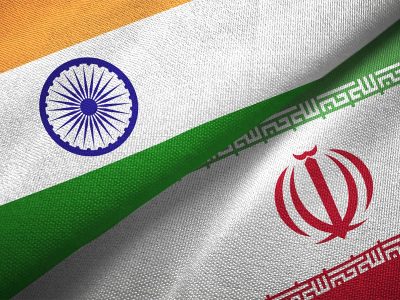India Is Wrong to Blame Iran’s IRGC for Late January’s Attempted Terrorist Attack

All Global Research articles can be read in 27 languages by activating the “Translate Website” drop down menu on the top banner of our home page (Desktop version).
***
Russia’s publicly financed international media outlet Sputnik published a piece on Monday titled “‘Asymmetric Warfare’: India’s Anti-Terror Unit Claims Iran’s Quds Force Behind Israeli Embassy Blast”.
The article quotes an unnamed senior official at India’s National Investigative Agency who blames the IRGC for the non-lethal blast that occurred in the country’s capital in late January. Instinctively sensing a false flag attack, I immediately shared my concerns about this previously unconfirmed narrative that was bandied about at the time by Indian and “Israeli” officials in an analysis that I wrote for Pakistan’s Express Tribune asking “Did Iran Really Carry Out An Attempted Anti-Israeli Terrorist Attack In India?”
Iran’s official response to these latest official Indian allegations was reported by Sputnik in its follow-up piece titled “‘Sinister Intentions of Enemies’: Iran Slams Report Claiming IRGC Behind Israel Embassy Blast”. That article quotes the statement released by the Iranian Embassy in India which suggests that “third parties who are angry and dissatisfied with the progress in the relations between the governments of Iran and India” were responsible for what happened. This conforms to my previous speculation that the incident was really a false flag attack that tried too hard to implicate Iran. The question naturally becomes one of who would have the interests and means to carry it out.
Pakistan can be safely excluded from the list of suspects because India would have already blamed it if there was even a shred of evidence that could be spun as implicating Islamabad’s involvement. The very fact that this didn’t happen speaks to the unquestionable absence of such evidence.
Instead, the unnamed Indian official is quoted by Sputnik as saying that the investigation initially “hinted to the role of Islamic State” but that New Delhi eventually decided that the IRGC was really the true culprit. India could have stuck to the ISIS theory in order to avoid further complicating its increasingly complex relations with Iran but ultimately decided to pin the blame on the Islamic Republic, which advanced American, “Israeli”, and Saudi strategic interests.
Those three are therefore the most likely suspects, whether individually, in tandem, or altogether. It can only be speculated how one, some, or all three of them conspired to carry out that attempted attack, but there aren’t any other parties with both the interests and means. Even so, one must ask themselves why India would allow itself to be so obviously manipulated in such a crude manner by going along with the manufactured narrative that Iran was allegedly responsible. New Delhi knows that its statement risks worsening ties with Tehran, but it went ahead with it anyhow. This curiously coincides with new regional strategic developments that might explain the political calculations behind India’s decision.
Uzbekistan, the most populous state in Central Asia and the one with the most promising real-sector (i.e. non-energy) economic prospects, recently opted to go with Pakistan’s N-CPEC+ for connecting to the Indian Ocean instead of the eastern branch of the Indo-Iranian North-South Transport Corridor (NSTC). I wrote about this in my recent analysis for the Express Tribune which informed everyone “Why This Summer’s Central Asia-South Asia Connectivity Conference Will Be Crucial”. I explained that the agreement late last year to pioneer a railway between Pakistan, Afghanistan, and Uzbekistan (tentatively described by me as the PAKAFUZ project after the first letters of each country’s name) makes the NSTC redundant, thereby basically dealing a deathblow to it.
With this observation in mind, India might have calculated that it had nothing more to lose by going with the flow and publicly blaming the IRGC for late January’s attempted terrorist attack in New Delhi. If anything, doing so might have been expected to improve India’s standing in the eyes of its new American, “Israeli”, and Saudi allies. Iran has no means to “punish” India for its provocative allegation since the South Asian state no longer purchases the Islamic Republic’s energy resources like before due to its fear of being targeted by the US’ so-called “secondary sanctions”, and the PAKAFUZ project pretty much put an end to the economic viability of the NSTC’s eastern branch.
These factors help explain why India publicly accused the IRGC of being responsible for that attempted terrorist attack. Even so, India is wrong to have blamed Iran because it knows better than to believe that the Islamic Republic was truly responsible. This experience shows just how much of its supposedly cherished strategic autonomy India has surrendered to its new American, “Israeli”, and Saudi allies in recent years that it now unashamedly blames Iran for supposedly committing out an act of terrorism on its soil despite there being no compelling evidence to prove this. India knows that it’s being lied to by the US, “Israel”, and/or Saudi Arabia but is still going along with them anyhow because it naively expects to gain something in return.
*
Note to readers: please click the share buttons above or below. Forward this article to your email lists. Crosspost on your blog site, internet forums. etc.
This article was originally published on OneWorld.
Andrew Korybko is an American Moscow-based political analyst specializing in the relationship between the US strategy in Afro-Eurasia, China’s One Belt One Road global vision of New Silk Road connectivity, and Hybrid Warfare. He is a frequent contributor to Global Research.
Featured image is from OneWorld

